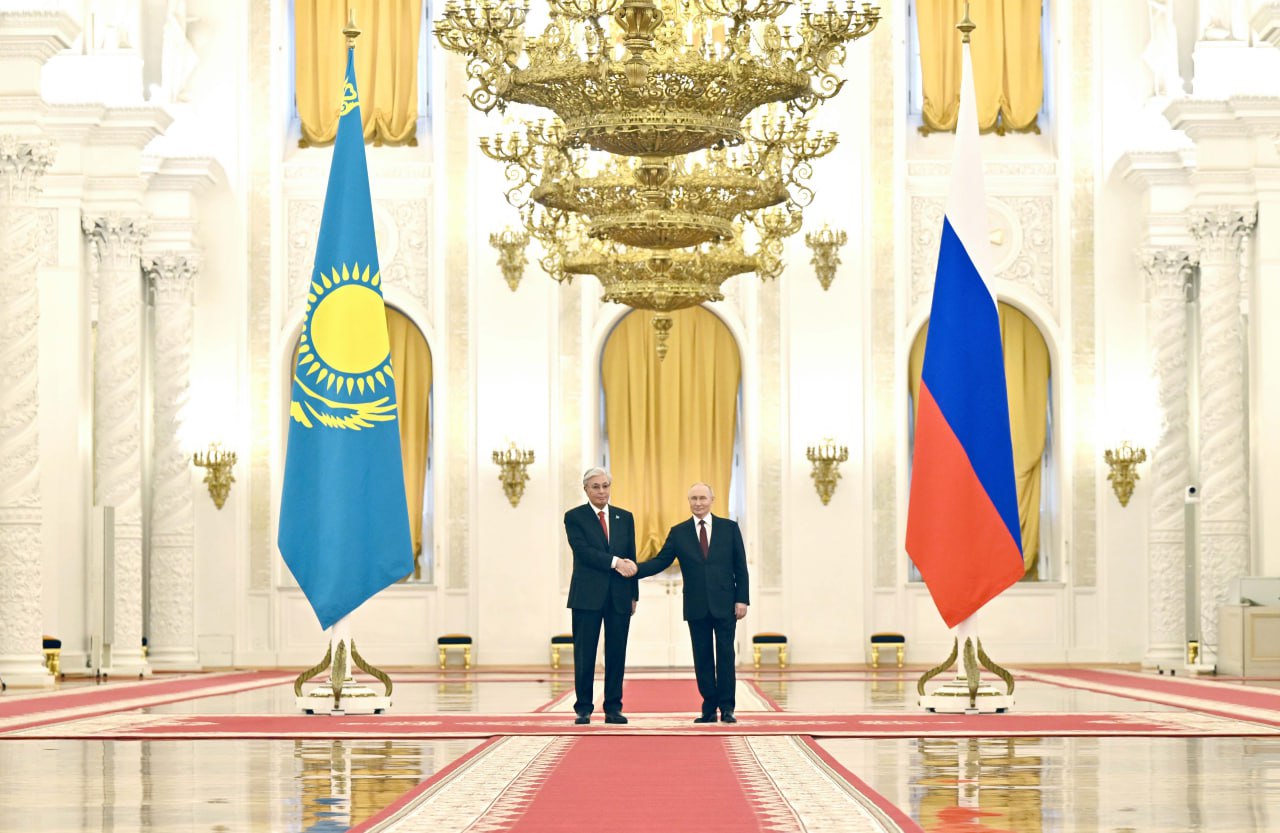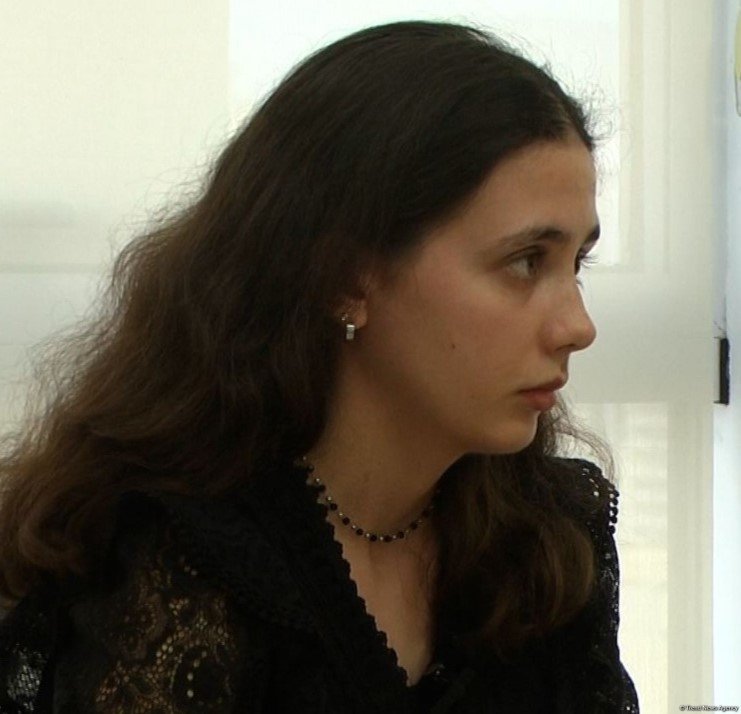BAKU, Azerbaijan, November 13. Kazakhstan and Russia, as close neighbors, keep their noses to the grindstone with a bustling array of interactions, and Russia continues to be Kazakhstan’s bread and butter in trade and economic partnerships. Trade transactions between the two nations reached $17 billion from January to August 2025, with ambitions to boost this figure to $30 billion, according to the Kazakhstan Bureau of National Statistics. Russia accounts for 29.4 percent of Kazakhstan's imports and 10.5 percent of the country's exports.
Furthermore, as per the National Bank of Kazakhstan, the gross inflow of foreign direct investment from Russia into Kazakhstan in the first quarter of 2025 hit the jackpot at $654.6 million, making it the cream of the crop among Kazakhstan's partner countries. Additionally, in terms of remittances sent to Kazakhstan from abroad, Russia remains the leader, with a share of 23 percent of the total amount as of August 2025.
Among the largest joint projects is the development of the eastern branch of the North-South transport corridor, which connects Central Asia and Russia with Iran. Other noteworthy developments include Rosatom's involvement in the building of Kazakhstan's first nuclear power station.
A further significant undertaking is the Caspian Pipeline Consortium (CPC), a global initiative for the transportation of oil that comprises Russia, Kazakhstan, and multinational oil corporations. The oil is mostly sent from the oilfield in Western Kazakhstan to the company's marine terminal in the town of Yuzhnaya Ozereevka (Novorossiysk) via a pipeline that is more than 1,500 kilometers long. From there, it is loaded into tankers and sent to markets throughout the world.
Against this backdrop, the state visit of Kazakhstan's President Kassym-Jomart Tokayev to Russia on November 11-12 was a logical continuation of the sustained course to strengthen bilateral relations. During the negotiations, a declaration was signed on upgrading the relationship to a comprehensive strategic partnership and alliance. A comprehensive economic cooperation program for 2026-2030 was also approved.
One of the priorities of the visit was to address long-standing infrastructure issues. Today, there are 51 border crossing points along the Kazakhstan-Russia border, 30 of which are automobile crossings. The main issues are related to their capacity and outdated infrastructure. While Astana and Moscow had earlier agreed to move the reconstruction dates to 2026–2027 (from 2030), an action plan was approved to develop car border crossings on the Russia–Kazakhstan border.
Additionally, the national companies Kazakhstan Temir Zholy (KTZ) and Russian Railways signed an agreement on the development of interstate junctions until 2030. The document provides for joint efforts to modernize border infrastructure and improve the capacity of railway crossings, taking into account the growing cargo flow. According to KTZ, since Kazakhstan’s independence, over 3 billion tons of cargo have been transported through nine railway crossings between the two countries. In the first ten months of 2025, the transport volume reached 71.6 million tons, which is five percent higher than last year.
In a media statement, Tokayev also announced that the two sides had agreed on the modernization of border checkpoints and the development of key routes, such as the North-South corridor (the eastern branch of which passes through Kazakhstan) and the Trans-Caspian Transport Corridor.
Energy cooperation also came up as a key topic during the discussions. A Memorandum of Understanding was signed between Kazakhstan’s Atomic Energy Agency and Russia’s Federal Service for Environmental, Technological, and Nuclear Supervision regarding cooperation in nuclear and radiation safety when using nuclear energy for peaceful purposes.
“I would like to particularly emphasize cooperation with the Russian Federation in the field of nuclear energy. We are close to signing very important agreements that will pave the way for the actual construction of a nuclear power plant in cooperation with Rosatom. This is truly an important and breakthrough project. It’s not only about building the plant itself but also creating a new sphere of competence,” Tokayev said.
Additionally, regional cooperation became one of the key themes of the 21st Forum of Interregional Cooperation, which focused on “Skilled Professions—Drivers of Economic Growth,” held in Uralsk. The President of Kazakhstan emphasized that the economic foundation of partnership is being formed in the regions. In turn, Putin noted that dozens of new agreements and memorandums were signed at the forum, signaling the willingness of Russian and Kazakh regions to consistently build closer cooperation.
Also receiving focus were humanitarian concerns. As the president of Kazakhstan noted, there are currently nine branches of Russian universities operating in Kazakhstan, and the Al-Farabi Kazakh National University was the first domestic university to open a branch in Russia. It was also mentioned that plans are underway to establish a Kazakh Information and Cultural Center in Moscow and to build a branch of the Russian school “Sirius” in Almaty.
“The potential of Kazakhstan-Russia relations is vast, and there is no end to our joint work. There are virtually no areas left where our countries are not engaging in productive cooperation. Between Kazakhstan and Russia, there are no unsolvable issues. This is a clear example of the high level of responsibility of both parties and their sincere readiness for joint work,” Tokayev told journalists during the visit.
Putin, during his meeting with Tokayev, emphasized that relations between the two countries “are developing steadily” and “are confirmed by specific deeds.”
“Kazakhstan and Russia are close partners, friends, and reliable allies for each other. This is confirmed by specific deeds. Russia is one of Kazakhstan’s leading trade and economic partners and ranks first in investments,” Putin said.
Kazakhstan and Russia keep up very close and steady relations, touching on the economic, infrastructure, and humanitarian areas. The documents signed during the visit lay the foundation for enhancing existing ties. In this context, the statements of the heads of state and the Declaration on upgrading the relationship to a level of comprehensive strategic partnership and alliance once again demonstrate that the partnership between the countries is seen as a long-term process that will evolve and adapt to new challenges and opportunities.







